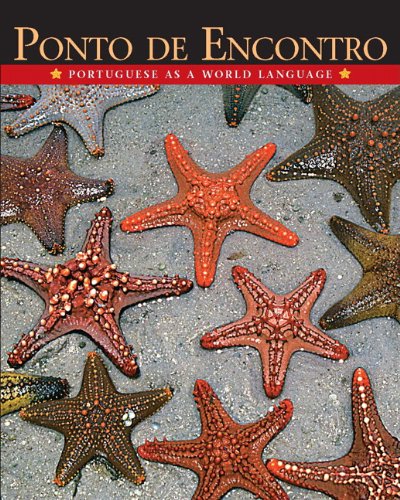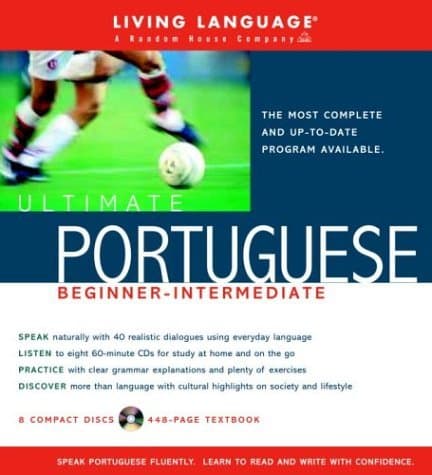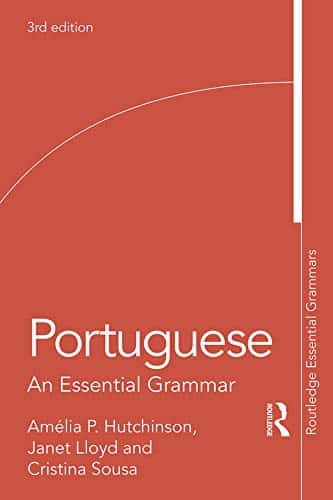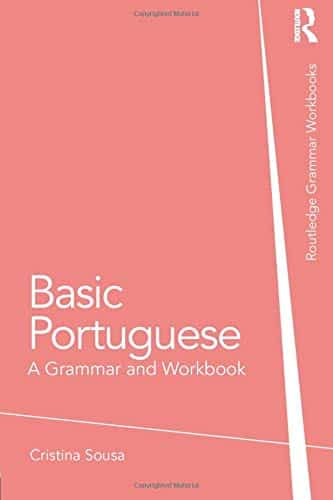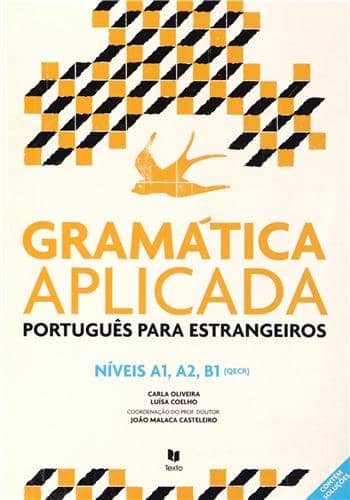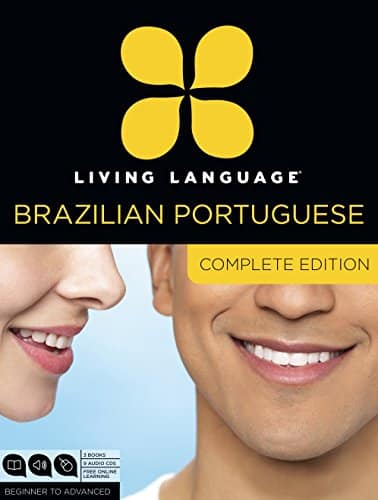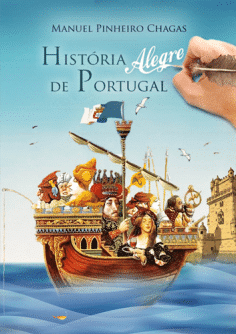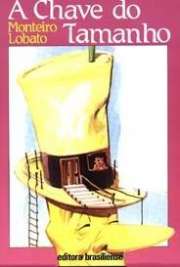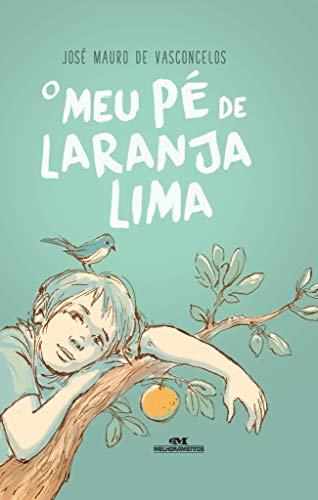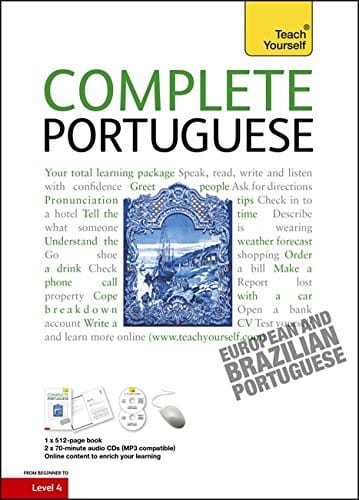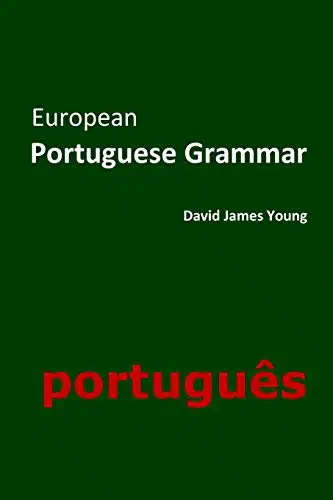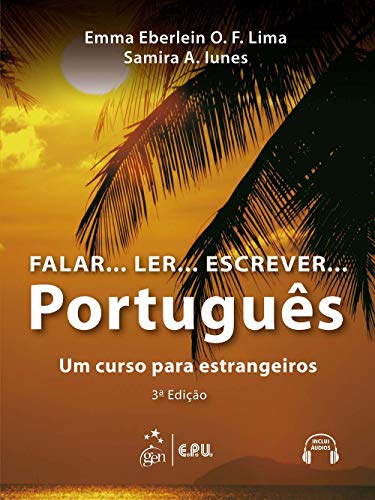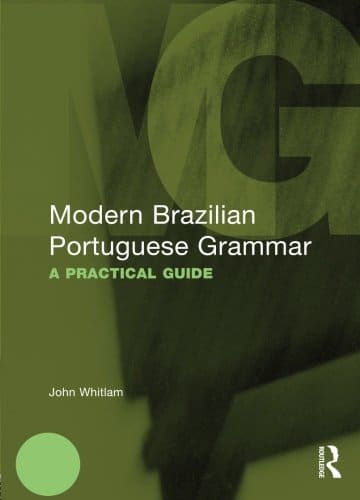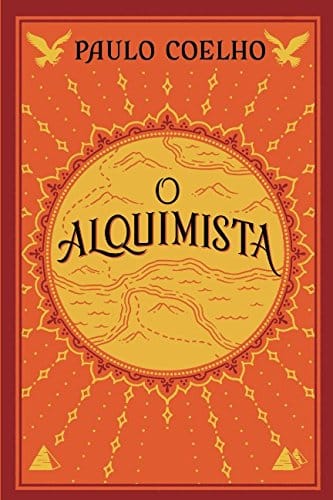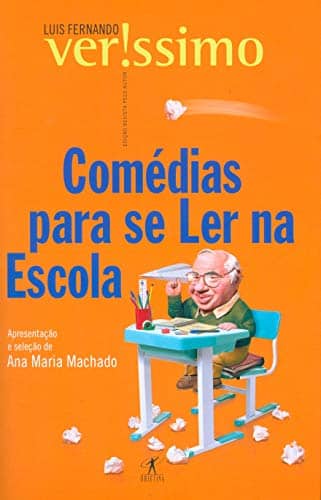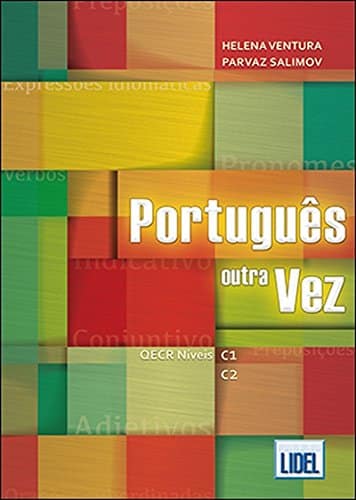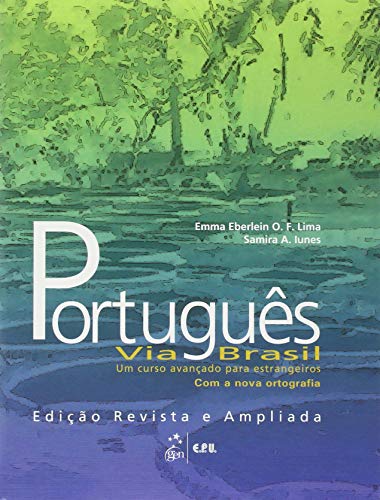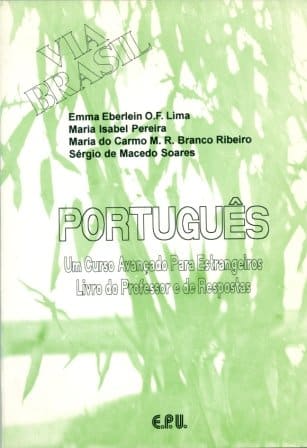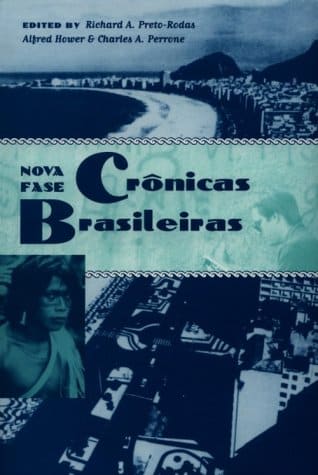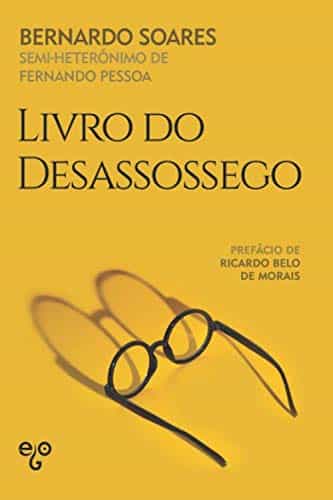
The 21 Best Books to Learn Portuguese
When it comes to books for learning Portuguese, we’re spoiled for choice these days.
That’s why I’ve compiled all my favorite books for all levels of Portuguese learners, covering many types of language acquisition, both European and Brazilian Portuguese, literary works and textbooks—and I’ve also divided the options into three groups by learning level (beginner, intermediate and advanced).
I think you’ll agree, there’s not necessarily one best book to learn Portuguese. It depends on what your current needs are.
Explore each section and make the most of each as you progress!
Contents
- Beginner Portuguese Books
- Intermediate Portuguese Books
- Advanced Portuguese Books
- Why Learn Portuguese from Books?
- How to Choose the Best Book to Learn Portuguese
Download: This blog post is available as a convenient and portable PDF that you can take anywhere. Click here to get a copy. (Download)
Beginner Portuguese Books
Learning Books
1. “Ponto de encontro”
For Learning: Both Brazilian Portuguese and European Portuguese
This terrific monster of a book is over 500 pages and it has literally everything you need to get started with Portuguese.
Apart from superb grammar explanations, vocabulary and notes on culture and language usage, this book does something very few others do: it allows you to choose the variety of Portuguese you want to learn, presenting the differences between peninsular Portuguese and Brazilian Portuguese side by side when necessary.
I would say it could not get any better. But then—you realize there is also an activity book with two sections for each dialect, with over 400 pages!
Now, I can really say it does not get any better. Investing in this grammar book is definitely a wise choice as you can go back to it, even after years of finishing it to polish up your skills.
2. “Ultimate Portuguese Beginner-Intermediate”
For Learning: Both Brazilian Portuguese and European Portuguese
“Ultimate Portuguese” is another great stand-alone Portuguese course that will allow you to go from zero to intermediate in just a few hundred pages.
Like the previous book in this entry, “Ultimate Portuguese” shows both main varieties of Portuguese and explains their differences. Although I have to admit, the Brazilian variety seems a little bit favored over the mainland one.
With this book, you will learn pronunciation, grammar rules and vocabulary, all in a very typical, language-course way. If this makes you go “meh,” know there is also an option to buy a set of eight CDs as a companion to the book.
The CDs are divided into two groups: “Listen at Home” and “Listen on the Go”. Use the “Listen at Home” CDs when you are at home and able to work with your “Ultimate Portuguese” book. Bring along the “Listen on the Go” set when commuting, at work, during a break, at the beach… or whenever you do not feel like holding a book in your hands.
3. “Portuguese: An Essential Grammar”
For Learning: Both European and African varieties of Portuguese
If you are a seasoned language learner, you already know Routledge is one of the best publishers out there, especially when it comes to their essential language grammar guides.
This book focuses on the mainland and African varieties of Portuguese, but it goes so in-depth in its grammar explanations. So much so, that even a person trying to learn the Brazilian variety can benefit from it if they accompany it with some Brazilian speaking and listening resources.
This essential grammar focuses on grammar and usage above all things. It offers thousands of examples with translations that can be used as a basis to create new examples, and it focuses on the language actually used by native speakers.
It is worth mentioning that it includes a section on verbs and pronouns —and another one on Portuguese syntax for those who are hungry to learn more.
All in all, this is a great option if you want real examples that show grammar in context, love short and easy-to-grasp grammar explanations and do not mind the European-oriented scent of the book.
4. “Basic Portuguese: A Grammar and Workbook”
For Learning: European Portuguese
This book is yet another Routledge masterpiece with a mainland Portuguese flavor, only this time it includes hundreds of exercises together with fantastic grammar explanations and thousands of real-life examples.
Although the layout of the book is quite similar to the “Portuguese: An Essential Grammar” book, “Basic Portuguese” has been specifically designed to learn by yourself at home.
It includes 20 units that explain all the major grammar topics of the language, with a special emphasis on tenses and how to use them—a haunting nightmare if you have never tried to learn a Romance language before.
Each unit introduces a grammar topic and explains it with the help of examples and spot-on translations that sound really natural (the author has a Ph.D. in literary translation, so this is expected).
At the end of each unit, you have a series of exercises to practice what you have learned and a vocabulary list with the main words to learn. I recommend creating flashcards with them so that you never forget them.
5. “Gramática aplicada”
For Learning: European Portuguese
If you are officially moving to Europe or want to spend some quality time in Portugal, put this rather unknown Portuguese grammar book on your radar.
Perfect for levels A1 to B1 of the Common European Framework of Reference for Languages (or CEFRL for short), this book is great if you plan on staying in Europe because it contains material that is included in the official language exams in Europe (yes, those exams that allow you to work around there and even get a second nationality).
The book is very communication-oriented, as it opts for relevant topics that show everyday situations you are likely to encounter instead of regurgitating grammar concepts. The topics introduce the grammar and vocabulary needed for the unit, and the exercises you will find along the way ensure you have understood everything before starting a new topic.
The accompanying CD was recorded by native Portuguese speakers so that your accent can be as good as possible, and there is even a website where you can see all the books of the different series, check the solutions to the exercises and even download the audio for free!
6. “Living Language Brazilian Portuguese”
For Learning: Brazilian Portuguese
Are you learning Brazilian Portuguese? Do you want to have it all, and I really mean all, in one single package?
Then the Living Language book is all you need!
For starters, you get three textbooks (beginner, intermediate and advanced), nine CDs around one hour long each, free online learning resources and even downloadable audio!
More importantly, the Living Language book will take you from knowing nada to being fluent in Brazilian Portuguese, without having to purchase any other materials if you do not want to.
And finally, the price is great for everything that you get!
This course is based on four approaches that have been perfected over the last 65 years in order for students to get the most out of their learning experience:
First—It teaches you basic vocabulary that is really used by native speakers. The basic words soon become phrases and later on, sentences, letting you adjust and progress as you absorb more new words.
Second—It uses the “small steps” approach so that you do not get overwhelmed. You will slowly but steadily get closer to fluency without even noticing it!
Third—It teaches you the language through different channels, making sure that you do not get bored, but also that you get to read, listen, learn grammar and vocabulary and practice your speaking all in one.
Finally—It pays special attention to grammar explanations so you understand what you are learning rather than learning by heart and repeating like a parrot.
Casual Reading
7. História Alegre de Portugal”
For Practicing: European Portuguese
“História Alegre de Portugal” is literally what the title (A Happy History of Portugal) says—a lighthearted, kid-friendly showcase of Portuguese history. The book was published in 1880 and uses historical events to build its narrative. In the story, a former teacher relates the history of the country to a tribal group.
8. “Uma Aventura”
For Practicing: European Portuguese
A multi-volume collection of children’s stories that started in the 1980s and is still getting new installments to date, “Uma Aventura” includes various stories following five teenagers: twin sisters Teresa and Luísa, as well as Pedro, Chico and João. The 1997 book “Uma Aventura na Casa Assombrada” (An Adventure in a Haunted House) was adapted into a film in 2009.
9. “A Chave do Tamanho”
For Practicing: Brazilian Portuguese
Monteiro Lobato’s works are a Brazilian literary treasure. They’re taught in schools and have been adapted into various plays and movies since their inception. “A Chave do Tamanho,” which loosely translates to “The Size Key,” was published in 1942. Its story is inspired by the tensions and turmoil surrounding the Second World War.
Seeing that Dona Benta is upset by all the violence, Emília (a talking ragdoll) tries to find the key that will take her to the end of the world—where she hopes she’ll find a way to restore happiness. Unfortunately, she picks the wrong key and makes the entire world shrink in size.
10. “Meu Pé de Laranja Lima”
For Practicing: Brazilian Portuguese
Everyone, of all ages, will fall in love with this story. This classic book was published in 1968 and has been translated into multiple languages—its English title is “My Sweet Orange Tree.” It tells the story of six-year-old Zezé, who comes from a very poor family. The little boy relates his life, and all his hopes and dreams, to an orange grove in his backyard.
You can check on Amazon for the availability of the revised edition of this book, which has been amended to suit those orthographic changes we mentioned earlier.
11. “O Menino Maluquinho”
For Practicing: Brazilian Portuguese
“O Menino Maluquinho” revolves around a quirky boy (hence the book’s title) who wears a cooking pot on his head and likes to get up to mischief. The original book was published in 1980, and its surge in popularity inspired Ziraldo (who’s also a cartoonist by trade) to turn his lighthearted story into a series of comic books—which were published from the 1990s to the early 2000s.
Intermediate Portuguese Books
It is very common when you are learning a new language to find a lot of resources for beginners and advanced learners. Intermediate students tend to be neglected, or perhaps publishers are too confident and think we can all go from beginner to advanced in a few weeks.
However, it pays off to have a good intermediate resource to bridge the gap between the beginner and advanced stages of language learning.
So, if you already know the basics of Portuguese (but still need a little push before going to advanced books), here are the best options for you.
Learning Books
12. “Complete Portuguese: Teach Yourself”
For Learning: Both Brazilian Portuguese and European Portuguese
Even though this book starts teaching you mainland and Brazilian Portuguese from scratch, you will soon understand why it is in the intermediate pile.
With over 500 pages, this complete course will get you to the B2 level in a few months if you put in the necessary effort.
Each unit begins with a dialogue regarding an everyday topic and it builds onto it by adding grammar explanations, vocabulary, sample sentences and exercises to test your knowledge. The two accompanying CDs will allow you to practice your listening and pronunciation skills and will give you additional exercises to practice even more.
The book is very user-friendly and it includes everything you need to learn Portuguese, but the pace can become too fast sometimes. You will need to make sure you have understood and memorized everything before going on to the next page since the whole book uses the grammar and vocabulary that has already been learned.
Some users have also left reviews complaining of confusing or inaccurate exercises and answers. Taking all this into consideration, I recommend this book for individuals who learned (or started to learn) Portuguese in the past who want to refresh their memories, or as a companion book for another resource like a course.
13. “European Portuguese Grammar”
For Learning: European Portuguese
If you like experimenting and do not mind spending a few dollars on a book that is completely different from what you would expect of a language textbook, you should try “European Portuguese Grammar.”
This book is specifically designed for people who have never studied languages before or have limited knowledge of grammar and grammar concepts. The author of this approach creates his own categories and ways of introducing terms and vocabulary in a simple, sometimes even hilarious way.
As a grammar nerd, I would never lay my hands on this book because of the mere fact that it ignores grammar in order to explain the grammar of a language, but if you want to forget about terms like “noun,” “pronoun,” “tense” and “infinitive” and are willing to have to connect a few dots in order to make sense of what you are learning, give this book a try.
14. “Falar… Ler… Escrever… Português”
For Learning: European Portuguese
This student book with an accompanying CD is perfect if you already know another Romance language because it includes information you might not be able to make sense of if you do not have a little bit of knowledge of Spanish or Italian, for example.
That is exactly why I have added it to the intermediate pile of books. Even though it starts from zero, it assumes you know some things about the language that you might not actually know. It also sometimes shows, rather than explains, grammatical concepts or tenses that a native speaker of English can only dream of understanding in five minutes.
The book includes texts and hundreds of exercises that focus on three main aspects of the language, as the title suggests: speaking, reading and writing. The grammar explanations, vocabulary and cultural notes on Brazil are a nice addition to a book that would be better used in a class with a teacher or a private tutor, but that can also be used for self-learning if this is not your first contact with a Romance language.
15. “Modern Brazilian Portuguese Grammar: A Practical Guide”
For Learning: Brazilian Portuguese
Routledge goes at it again with a 500-page textbook that has Everything, with a capital E, that you need to know about Brazilian Portuguese from a practical point of view.
You get to learn not only pure grammar and vocabulary with thousands of examples. This guide also explains the functions of the language, how to talk about your likes and dislikes, express regret, give information, indicate cause, effect and purpose—just to name a few.
Both grammar and language function together to make this one of the best books available for learning Brazilian Portuguese at the moment. If you buy the workbook with exercises, you will not need anything else in order to get fluent from the comfort of your own home.
What I like the most about this book is that it points out the differences between the written and spoken language and the formal and informal registers, so that by the end of it all you know what to say to whom without having to be embarrassed.
Casual Reading
16. “O Alquimista”
For Learning: Brazilian Portuguese
Better known as “The Alchemist” in the English-speaking world, Paulo Coelho’s international bestseller received its surge in popularity partly because it’s written in layman’s terms. The book, which has been translated into several languages, follows a young Andalusian pastor named Santiago, who travels to Egypt after a series of mysterious recurring dreams.
17.“Comédias para se ler na escola”
For Learning: European Portuguese
There is not much to say about this book apart from the fact that it contains numerous short stories that are comedies. I have not personally read it, but according to the reviews, it is a great book if you want to practice your reading comprehension skills in a funny and easy way.
The fact that it is divided into short stories makes the book more approachable if you are not a real fan of reading. But remember practice makes perfect and using every skill is equally important when learning a new language.
Advanced Portuguese Books
You are now ready to take the final step and become the master of Portuguese you have always wanted to be.
At this point, you can easily have a conversation with a native speaker, understand most of the things you read and your listening comprehension skills are spot on.
Use these books to get closer to fluency, and learn to use the language like a native!
Learning Books
18.“Português outra vez”
For Learning: European Portuguese
“Português outra vez” is an exercise book recommended for learners of European Portuguese who need that final push to become completely fluent.
This textbook is intended for learners at the C1-C2 level and focuses on three main aspects of the Portuguese language: idioms and expressions, verb regency and contextualization of grammatical structures.
The idioms and expressions part of the book will show students how to speak naturally and will allow them to better understand the Portuguese language and culture.
Verb regency deals with verbs and their regency, that is, their need for a complement, a preposition, nothing at all, etc.
The contextualization of grammatical structures will teach learners about the subtleties of the Portuguese language and culture and how to make good use of them.
When you finish this book, you can expect to express yourself like a real native, in both oral and written form.
19.“Português via Brasil: Um curso avançado para estrangeiros”
For Learning: Brazilian Portuguese
This grammar book with exercises is perfect for advanced students who need to review key grammatical concepts and learn new ones while acquiring the vocabulary necessary to become proficient in Brazilian Portuguese.
The 10 units included in the book present different texts and reading passages on various topics in an attempt to both teach grammar and vocabulary and offer a glimpse into the culture and history of Brazil.
The textbook is well-structured and allows the learner to practice different aspects of the language thanks to the numerous exercises included. However, there is no answer key, something that has been widely criticized by many. If you want the key to the exercises, you will have to check out the Teacher’s edition, unfortunately.
After finishing this course, you will reach a C2 level of linguistic competence, both oral and written. Plus, you will be able to understand Brazilian Portuguese as well as (or nearly as well as) you understand your native language.
20.“Crônicas brasileiras”
For Learning: Brazilian Portuguese
This one is a masterpiece if you ask me—it is perfect for advanced learners of Brazilian Portuguese who want to achieve perfection while learning a whole lot about the culture and history of Brazil, especially that of Rio de Janeiro, during the 60s and 70s.
This resource contains a compilation of news clips, magazine articles, newspaper columns and other primary sources written by exceptional contemporary authors in what looks like an old book messily typewritten (which I personally love).
This book will allow you to have a look at different aspects of urban life in Brazil while you practice your writing, speaking and reading comprehension skills. It includes notes that explain the meanings of obscure terms and expressions, exercises and a vocabulary list.
It is a superb way to master fluency and learn about the history and culture of the country where the language you have been learning is used. There is no better way of ending your path to proficiency.
Casual Reading
21. “Livro do Desassossego”
For Learning: European Portuguese
Admittedly, this is going to be the hardest book on our list. But even so, this classic piece of Portuguese literature (The Book of Disquiet) is written in quite an accessible language. Its complexity stems from the fact that this novel is divided into semi-autobiographical fragments. Considered to be the author’s deepest narrative, “Livro do Desassossego” was Fernando Pessoa’s final book. It was published in 1982, some 47 years after Pessoa’s death.
Why Learn Portuguese from Books?
As a polyglot myself, I indeed have a series of techniques and go-to’s when it comes to learning a new language.
I try to attack the language from every available front: listening to podcasts, writing, reading bilingual books, watching kid shows, making flashcards and, of course, studying grammar!
Grammar is one of the main ingredients in your recipe for language learning success. If you really want to learn a language for anything else than just saying good morning and ordering a beer, then you need to deal with its grammar.
When you learn grammar, you engage with the rules that bring a language to life. You have a look at the skeleton of the language and get to know every single (or almost every) aspect of it.
But just as you would never learn a language by just studying single, isolated words—learning only the rules would never bring you to fluency, either. You need to have the whole package and use every ingredient available to you.
When it comes to seriously learning Portuguese, grammar books and textbooks are the way to go. But why are books so great for learning Portuguese?
I could name a million reasons, but I will keep it simple:
- Grammar books let you learn the language from the inside. They create a Trojan horse effect—if you get to know the language from the inside and attack it from within (i.e. learn its grammar rules), you will win the battle every single time.
- Textbooks make your vocab rich(er). For gaining vocabulary and seeing examples, a good textbook can make all the difference. Conversational classes may fall flat with short-term memorizations after a day. An instructional book, however, allows you to learn the rules behind sentences, create your own ones and make progress in your studies.
- Textbooks help train your brain. The human brain loves seeing things, and words are things that can be seen. When you learn a new language with the help of a grammar book you are seeing, mentally reading—and quite possibly—mentally listening to yourself. Several levels of input are much better than just one!
- Grammar books will always be there for you. Even if your memory is not the best, like mine, you can always go back to your grammar book and review the topic in question—something you can definitely not do with a speaking class (unless you are recording it).
So there you go! Portuguese textbooks and grammar books are awesome! Period.
Don’t forget—you don’t have to stick to a single resource. Choose a good textbook to study with, but don’t abandon your other learning methods. Combining your book learning with resources that test your visual, listening and speaking skills is a great way to get an all-around language learning experience.
You can practice new language skills in a more natural setting by using an immersion program. FluentU, for example, uses authentic Portuguese videos paired with customized quizzes that let you choose, type or speak answers to multimedia questions.
The videos on FluentU are short for quick bursts of learning, like movie trailers, TV show clips, music videos and more. These give you a chance to see the language features that you’re learning in use by native Portuguese speakers.
However you do it, it’s a great idea to use additional resources to put your textbook studies in context.
How to Choose the Best Book to Learn Portuguese
Now, for the next step—choosing the right book for you.
The final decision comes down to your unique needs, but there are a couple of factors that you should always bear in mind:
- Take your level into account. This one may seem obvious, but a lot of people just go for the first colorful book they find and do not even consider their language level. Choose a resource compatible with your knowledge of the language.
- Consider your goal. If you just want to have a general knowledge of Portuguese, opt for stand-alone complete resources that condense everything into a few hundred pages. If you really want to know everything about the language, choose books that come in a series of two or three, progressing in difficulty level.
- Money matters. Almost nothing is truly free in this world anymore, and grammar books are definitely not on the cheap end of the price spectrum. If money matters to you, choose secondhand books. You can even go for older editions of the book you want or borrow it from your local library.
The important thing here is to get hold of the book without going bankrupt.
So there you have it—the ultimate list of the best books to learn Portuguese at any level. These grammar books and textbooks will take you from zero to hero in no time without even having to leave your house.
Whether you are a beginner or an advanced learner of Portuguese, you will definitely find something for your needs. There is no reason to fear grammar and grammar books, and as these titles say—if you pick the right book, it can help you to achieve fluency. Even if you never visit Portugal or Brazil.
So select yours now and start your new great Portuguese adventure. Save this post and go through the list as you learn more Portuguese.
Stay curious, my friends and, as always, happy learning!
Download: This blog post is available as a convenient and portable PDF that you can take anywhere. Click here to get a copy. (Download)
